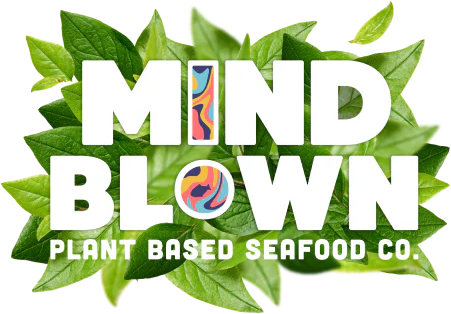
Plant-based seafood has made up a much smaller part of the market than plant-based alternatives to beef and chicken, but there’s evidence that the rising tide of demand for plant-based options could be lifting a growing number of boats.
Even as sales of plant-based meat, dairy and egg alternatives have soared in recent years, vegan alternatives to fish and other seafood have often trailed in the wake of big names like Impossible Foods, Beyond Meat and Eat Just. Consumers were increasing their exploration of plant-based options even before the pandemic hit, and new products were coming onto the market that made going flexitarian easier and more comfortable by providing options that were ever-closer to omnivores’ familiar favorites.
Retail sales of plant-based foods grew about 11% in 2019, according to SPINS data compiled for the Good Food Institute and the Plant Based Foods Association. Sales of plant-based meat alternatives surged 18.4%, while seafood didn’t even get its own category in the report. But, while fish made from plants is still a small part of the overall category, some companies are catching up and continuing to create new products that get closer and closer to the fish dishes consumers know and love.
Established players in the plant-based meat segment including Gardein and Quorn offer alternatives to familiar frozen favorites like fish sticks. Nestle launched its first plant-based fish, a tuna alternative last year, and another company, Sophie’s Kitchen, sells both shelf-stable canned tuna made from plants and a lineup of frozen plant-based items that includes shrimp, fish fillets and smoked salmon.
Gathered Foods raised $36.8 million in a new funding round last year to grow its chef-driven plant-based seafood offerings and last year the company’s Good Catch brand expanded from its original line of shelf-stable tuna products to frozen crab cakes, fish cakes and fish burgers.
The company was the only one to land on the top 10 list of plant-based companies by funding raised in 2019, according to a report from the Good Food Institute.
“There’s kind of nothing like this in retail yet, it’s a category breaker — a new kind of product,” Gathered Foods co-founder and CEO Chris Kerr said in an interview for Forbes.com last year.
The pandemic hit pause on the company’s plans to grow into foodservice channels, but it expects to rev that back up as restaurants and other foodservice companies return to more normal operations. Meanwhile, the focus has been on growing in retail channels and the Good Catch line is now available in supermarkets around the country.
The category is growing
The pandemic may have taken a temporary bite out of foodservice demand, but it’s also further spurred consumers’ awareness on food and sustainability issues, said Monica Talbert, co-founder and CEO of Plant Based Seafood Co.
“The pandemic has awoken the conscious consumer,” Talbert said. “It was starting before that, but once COVID hit it just ignited that. Consumers want to know where their food comes from and how it’s affecting their body. And how it’s affecting the environment and the future of the environment. They’re paying more attention to climate change and how they play a role in mitigating climate change.”
Talbert's company comes to the plant-based seafood challenge with an insider’s perspective.
She grew up on the Chesapeake Bay and, in 2001, she and her mother, Shelly Van Cleve, opened a small local conventional seafood business that grew incrementally and ultimately expanded with a wholesale arm selling conventional seafood to retail customers, first in local markets and eventually around the country.
Plant-based wasn’t in the plan back then, but the growth meant expanding sourcing beyond the Bay to international waters, a learning experience that sometimes left the company’s founders with something of a bad taste in their mouths about the practices involved, Talbert said. That led to the launch of the Wild Skinny Clean line of sustainable seafood sourced from America’s waterways and processed without added chemicals.
That new venture also included the company’s first plant-based product, a crab cake that could fool even locals like Talbert who spent their lives consuming the local catch. Wild Skinny Clean’s only plant-based product surged in popularity and demand grew so rapidly that last year the company created Plant Based Seafood Co. and, in August, launched the first products under its Mind Blown brand.
In addition to the original crab cake, the Mind Blown line now includes other plant-based versions of popular items like dusted scallops and coconut shrimp.
Just as in other plant-based food categories, companies making seafood alternatives must create products that are as close as possible to the real thing. That’s where they often benefit from the bigger buzz built by plant-based meat players -- the high-profile development of those products demonstrated the demand and spurred ingredient makers to innovate, creating a bevy of new plant-based proteins and ingredients that also allow plant-based seafood brands to get more creative.
“There have been a lot of ingredients developed over the past five years,” Talbert said. "In the beginning, we worked with what we could get our hands on."
Since then, she said, the company has worked closely at times with suppliers to source new ingredients and sometimes tweak them to more closely match the company's needs.
The venture launched with a direct-to-consumer model and has since grown its wholesale component in a partnership with supplier Pod Foods, and it’s poised to grow distribution further in a new deal with UNFI, Talbert said. The first Mind Blown products are slated to hit national grocery stores this month.
Talbert’s company also has the advantage of having readily accessible taste testers who, like her family, grew up eating fresh local seafood
“Our headquarters is on a little island on the Chesapeake Bay -- we have an amazing focus group right at our fingertips,” Talbert said.
Now that the brand has mastered plant-based crab cakes, shrimp and lobster, it’s taking on bigger challenges. Next on the menu -- calamari made from mushrooms.
